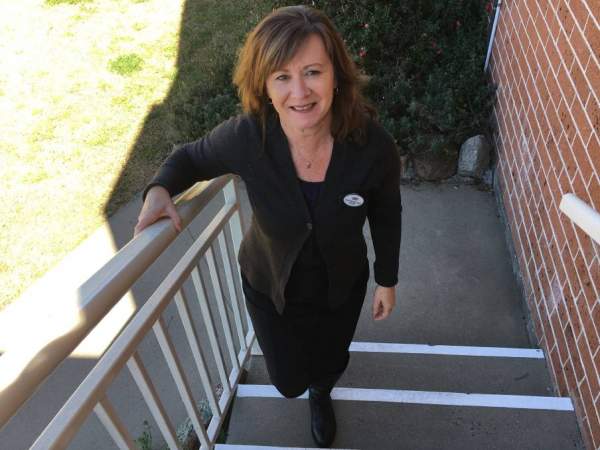Figures released by Alzheimer’s Australia show an estimated 1,400 people in the Northern Tablelands district are living with a diagnosis of dementia. But of course the number of people affected by the disease goes well beyond that figure to the family and friends close to those with the illness.
It’s an often unspoken but common aspect of life in our community that Inverell Dementia and Carer Support Coordinator Sandy Jeffrey knows well.
Based at the Inverell Home Support Program, Sandy runs the Carer Support Group for people looking after someone diagnosed with dementia. She says the word ”dementia” doesn’t refer to a single a disease rather “it’s an umbrella term that covers more than a hundred different diseases”.
“Alzheimer’s in the most common type of dementia with vascular dementia being the second most common type,” she says.
Dementia refers to a decline in cognitive ability that is severe enough to interfere with daily life.
“It’s more than the occasional memory loss,” Sandy says. “You may become confused with time or places – like driving somewhere in the car and not remembering where you are going or how to get home.”
She says there can be problems carrying out or completing familiar tasks, decreased judgement like problems handling money or paying bills, and possibly trouble talking, writing or having a conversation. Short-term memory problems are also common.
“It’s usually a family member or friend that will pick up that something’s wrong – that there’s been a change, and it can be really difficult for the person to go to the GP because dementia has a lot of stigma surrounding it,” Sandy says.
But she adds that going to the GP is the first necessary step to sort out what’s causing the problems because other conditions like depression and delirium can cause similar symptoms.
According to Alzheimer’s Australia, Dementia can happen to anybody but it is more common after the age of 65.
While there is, as yet, no cure, Sandy says people living with dementia can still remain engaged in the community and lead meaningful lives.
“A person should not be defined by their diagnosis,” she adds noting that a recent survey revealed around 70 percent of Australians admit to not knowing much about the disease. “That’s why it’s good to educate yourself and make yourself aware.”
Along with your GP, Sandy says local services for people living with dementia and their carers includes the Dementia and Carers Support service where she works; and the Dementia Support Worker based at our website or by calling 1800 100 500.
by Heidi Gibson originally appeared on the inverell times.
5 sep 2017
